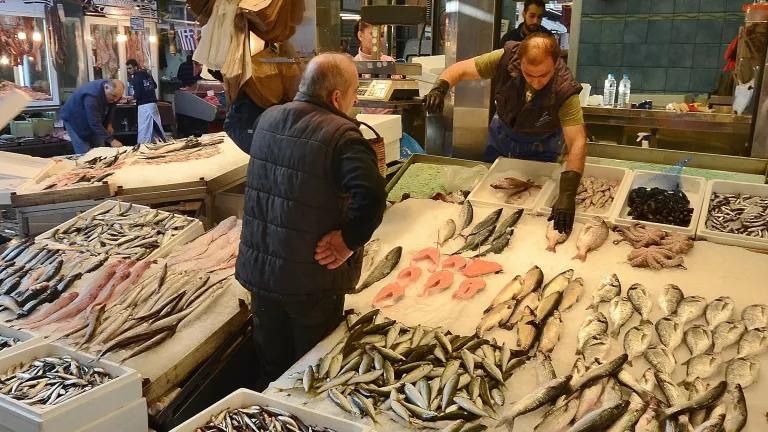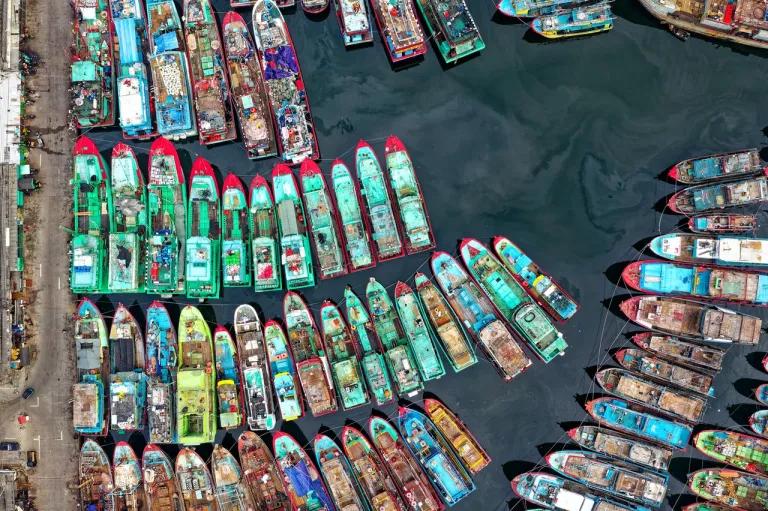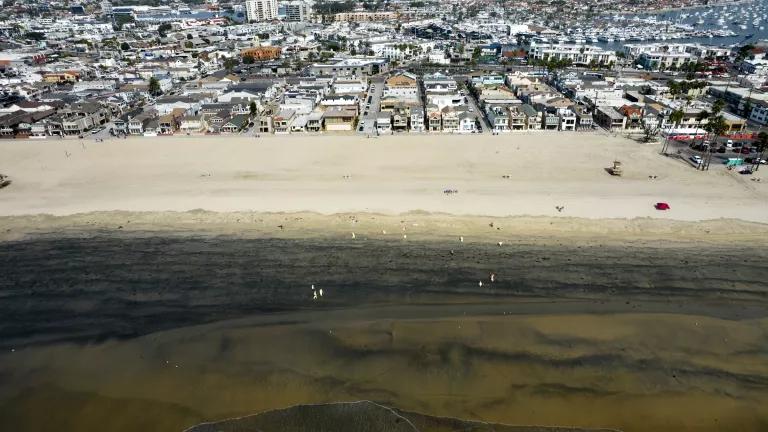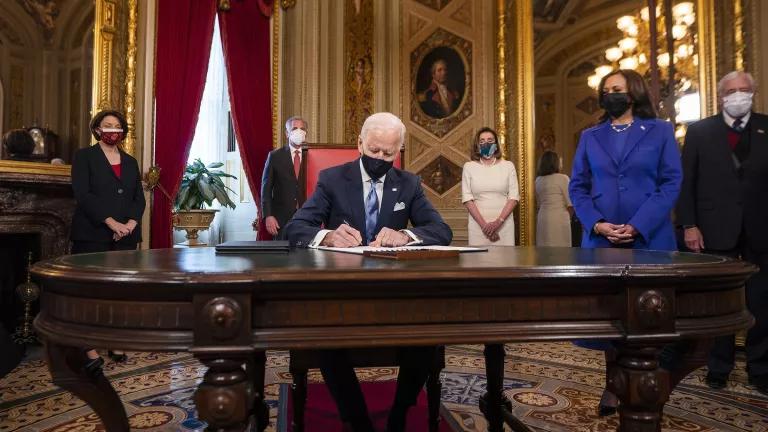Chefs Urge Congress: End Illegal Fishing & Labor Violations
Today, over 200 chefs, authors, and restauranteurs from 43 states are asking Congress to crack down on illegal, unreported, and unregulated (IUU) fishing.

Man buying fish at a market
Today, over 200 chefs, authors, and restaurateurs from 43 states are asking Congress to crack down on illegal, unreported, and unregulated (IUU) fishing. Celebrity chef Tom Colicchio is part of this coalition of food industry workers fighting for fair seafood. Advocating for legally and ethically caught seafood is important to him and many other chefs.
“When I serve seafood to my customers, I want them to be confident that it was caught legally and that everyone involved in its catch and production was treated humanely,” Colicchio says. “Right now, that is all but impossible. It doesn’t have to be this way, because the U.S. government can step up efforts to stop illegal fishing and require that seafood workers are treated with the respect and dignity they deserve.”
As the long list of signers shows, this is an issue that matters not only to chefs and consumers in large port cities, but in all areas of the country—from West Virginia to Arizona, and even U.S. chefs working overseas.
IUU fishing is placing the world’s ocean, fisheries, and human lives under threat. IUU fishing includes ignoring fishing laws and regulations, using prohibited gear, and is often accompanied by labor and human rights violations. As my colleagues have written, the United States is the world’s largest seafood importer by value, but as much as 32% of imports sold in the US are harvested through illegal or unreported fishing practices. This problem impacts people on all levels of the supply chain, from fishers to chefs to consumers.
Earlier this year, Representative Jared Huffman (D-CA) and Representative Garret Graves (R-LA) introduced the Illegal Fishing and Forced Labor Prevention Act (H.R. 3075), to curb IUU fishing and its corresponding human rights abuses. This bill would expand the Seafood Import Monitoring Program to all species, improve detection of imports at risk of IUU fishing and labor violations, establish seafood traceability requirements throughout the entire seafood supply chain, and make anti-forced labor laws more enforceable for seafood. As chef Colicchio explained, chefs care about seafood traceability. They want to ensure that consumers know exactly what they are eating and that the chefs themselves know exactly what they are serving. Seafood usually changes hands seven times between harvest and consumption, requiring airtight coordination between multiple agencies for effective tracing. This shared responsibility results in loopholes that make it easier to import seafood that is inaccurately labeled or harvested through IUU practices. By addressing loopholes in US traceability regulations, seafood can be followed more closely from fishery to plate, giving chefs more confidence and pride in what they are serving to consumers.

Aerial view of fishing boats in Penjaringan, Indonesia
We’ve written previously about how addressing IUU fishing is good for fishers in the US and abroad. But it doesn’t end there. Cracking down on these practices is something that helps consumers and matters to chefs across the country.
As the world’s largest seafood market, the United States has power-and a responsibility-to reject illegally sourced seafood to protect the planet’s fisheries and fishers. By improving its leadership and supporting legislation like the Illegal Fishing and Forced Labor Prevention Act, the US can be a world leader in promoting fair labor practices and sustainable and ethically sourced seafood.



